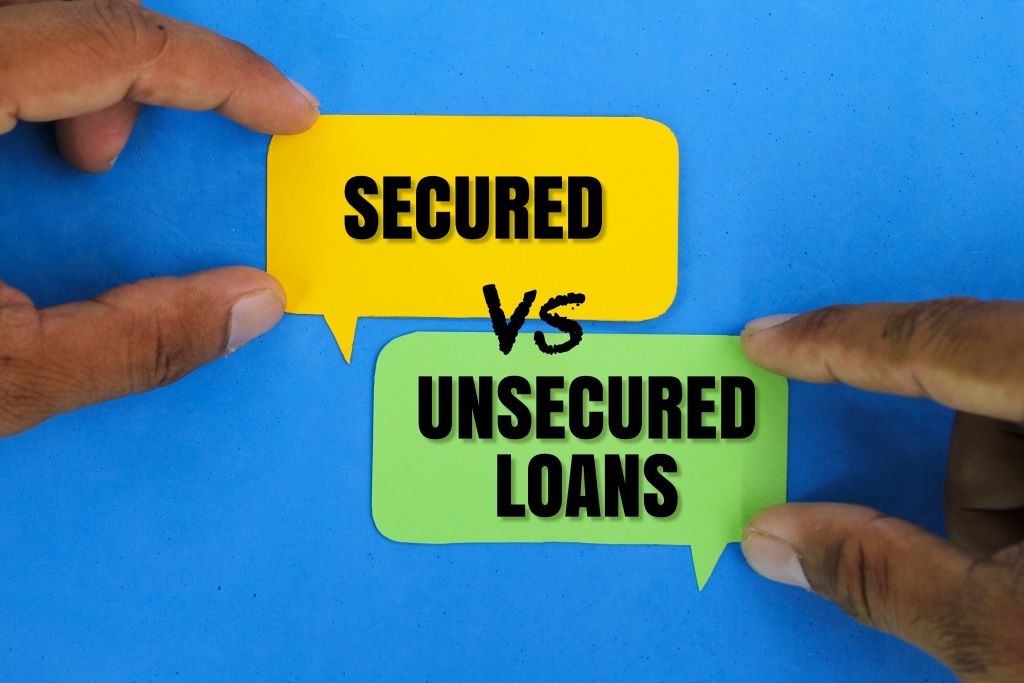
Managing your debt can be a lot to deal with, especially when you’re juggling multiple loans, credit cards, and bills each month. One option that many people consider when they are in this situation is debt consolidation. Consolidating your debt allows you to combine multiple debts into a single loan. This can streamline your payments and maybe even save you money. But how does debt consolidation work, and is it the right move for you? Let’s dive into the details to find out.
What Is Debt Consolidation?
Debt consolidation is when you combine several debts into one loan. These could include credit cards, personal loans, or medical bills, for example. The idea is simple: instead of making multiple payments to various lenders, you typically make just one payment to a new lender or account. Ideally, this new loan would come with better terms, such as a lower interest rate or a more manageable monthly payment.

Secured Vs. Unsecured Loans
There are generally two types of loans or debts: secured and unsecured.
A secured debt is one that is is typically backed by collateral. Your mortgage or car payment is typically secured, as the collateral is the house or car you’re paying for. If you can’t repay the loan, you’re at risk of losing the collateral.
But credit card debts and student loans are usually unsecured. This means there is no physical collateral that can be collected by the financial institution that gave you the money in case you default on your payments. In most cases, debt consolidation companies may not be able to help with secured debts — only unsecured debts and loans.
How Does Consolidating Your Debt Work?
While debt consolidation doesn’t erase your debt, it can simplify your finances and help to make repayment easier. But like anything else, you will need to find the right consolidation method that works for you. So, here are a few popular options you can consider for consolidating your debt:
Popular Debt Consolidation Options
1. Personal Loan
A personal loan is one of the most popular ways to consolidate your debt. If you have multiple credit card balances or other unsecured loans, you can try and apply for a loan large enough to cover all your existing debts. Once you receive the funds, you can use the loan to pay off those debts. This will leave you with just one monthly payment to the lender.
This method can work well if you can get a loan with a lower interest rate than what you’re currently paying on your debts. With a lower rate, you could pay less interest over time. This could not only help you save money, but help to simplify your payments as well.
2. Balance Transfer Credit Card
A lot of credit card companies offer balance transfer promotions. Many times these come with an introductory 0% APR for a certain period (usually 12–18 months). If you have high-interest credit card debt, transferring your balances to a new card with a 0% APR may be the right move for you. Taking advantage of this promotion can help you temporarily avoid paying interest on your debt. You can instead use this time to pay down the balance more aggressively.
But keep in mind, it’s important to pay off the balance before the introductory period ends. This is because the interest rate can skyrocket afterward. Also, balance transfer cards often charge a transfer fee, typically around 3-5% of the amount you’re consolidating. So, keep this in mind when making your decision.
3. Home Equity Loan or Line of Credit
If you’re a homeowner, you might be able to tap into your home’s equity to consolidate your debt. Home equity loans and home equity lines of credit (HELOCs) allow you to borrow against the value of your home. The good thing is this is usually done at a much lower interest rate than credit cards or personal loans.
But it’s important to also be aware of the risks that come with this option. While this can be an effective way to consolidate your debt, it can also be risky. After all, you’re putting your home on the line. So if you’re unable to make payments, you will risk losing your house. This method should only be used if you’re confident that you can repay the loan. As always, talk to a financial advisor if you’re not sure or have questions.

4. Debt Management Plan
If your debts are too much for you to handle alone, you might want to consider working with a credit counseling agency. These types of agencies can help you set up a debt management plan (DMP). The agency can also typically negotiate with your creditors to reduce interest rates or waive fees. And they can work to combine your debts into one monthly payment. This can be a good option if you’re struggling to manage multiple debts but don’t qualify for loans or balance transfer cards.
Does Consolidation Reduce Your Debt?
The short answer is NO. Debt consolidation doesn’t lower how much you owe your lenders. Instead, it could allow you to renegotiate high interest rates with some creditors, which could save you money that would be accruing on top of your existing debt. It also streamlines your debt payments into one single bill.
Does Consolidating Your Debt Hurt Your Credit?
Consolidating your debt can have both positive and negative effects on your credit score, depending on how it’s managed. Here are a few pros and cons:
Disadvantages of Debt Consolidation
While debt consolidation can be very helpful, it does come with a few disadvantages. Applying for debt consolidation may often result in a hard inquiry on your credit report. This may cause a temporary drop in your score. And opening a new credit account may lower the average age of your credit, which is another factor that may reduce your score. If you consolidate your debt and close your old credit cards, it could negatively affect your credit utilization ratio with the major credit bureaus.* This could further hurt your score. The risk of building up new debt after consolidation may also be damaging.
Advantages of Debt Consolidation
But on the other hand, debt consolidation has helped many people in a number of ways. Consolidating your debt can make it easier for you to manage your payments. Having one payment instead of multiple can help you avoid missed payments. Plus, consistently paying on time can improve your payment history, which is a key part of your credit score. Also, using a consolidation loan to pay off high credit card balances may lower your credit utilization ratio with the major credit bureaus, which may boost your score. Keeping old credit accounts open after consolidation could also improve your credit mix. These are all things that may help your score over time.
Overall, there are pros and cons to consolidating your debt. But debt consolidation is mostly to help lower your monthly payment or your interest rates. It can make it a little easier to fit your debt into your budget, but sometimes it can take longer to completely pay off. So, you’ll need to calculate the costs of lower interest rates for a longer span of time versus a higher interest rate for a shorter span of time. This way, you’ll be able to see which one saves you more money.
Watch Out for Scams When Consolidating Your Debt!
The debt consolidation industry can prey on desperate people who really need help. So make sure to carefully review any paperwork before signing and make sure you research the institution before working with them. There have been cases of companies pocketing monthly payments and leaving customers with damaged credit and bankruptcy.* So, make sure to look for accreditation with the Better Business Bureau. This can help you find reliable companies.

Creating Your Own Plan
When dealing with creditors, it can seem scary to approach them directly. But try to work with them first before going to a debt consolidation company. For tips on how to negotiate with debt collectors, check out our guide here. If you can’t do it alone, consider using consumer credit counseling services to help you come up with a payment plan that balances your largest debts with those that have the highest interest rates.
High-interest loans can be expensive and should be used only for short-term financial needs, not long-term solutions. Customers with credit difficulties should seek credit counseling. The opinions expressed above are solely the author’s views and may or may not reflect the opinions and beliefs of the website or its affiliates. Cash Factory USA does not provide financial advice.
* This blog contains links to other third-party websites that are not endorsed by, directly affiliated with, or sponsored by Cash Factory USA. Such links are only for the convenience of the reader, user, or browser.